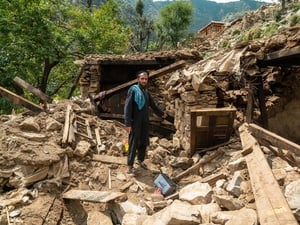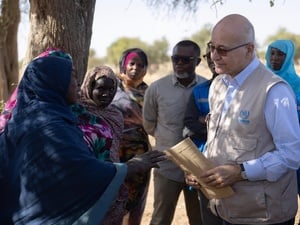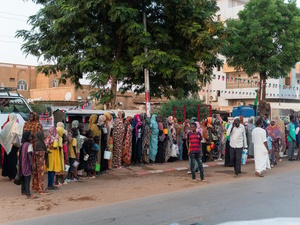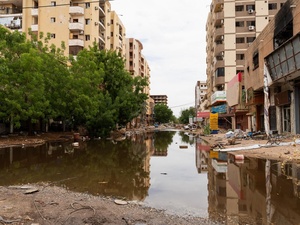Chad: second Sudanese relocation convoy completed
Chad: second Sudanese relocation convoy completed
Yesterday, UNHCR completed the second convoy in its relocation operation to transfer up to 95,000 Sudanese refugees away from the volatile Chad-Sudan border to Farchana camp further inside Chad. A total of 218 refugees moved from the site of Wandalou, 18 km south of Adré, to Farchana camp, 55 km inland. They were transported in five trucks to the new camp. The sick, elderly and vulnerable were transported in a bus and an ambulance provided by MSF-Holland. The first relocation movement took place on Saturday, when 148 refugees were transported to the camp.
UNHCR interviewed several refugees soon after their arrival in Farchana. They expressed satisfaction and relief at being in a safer site, where aid was more accessible. Their former site at Wandalou is only 200 metres from the border with Sudan. Sudanese refugees staying in Wandalou said they had been raided several times in recent months by militia crossing over from Sudan.
Upon arrival at the new camp, the refugees undergo a registration process and receive a family registration card. They then go through a medical screening from staff from MSF-Holland, before receiving food rations for fifteen days. The rations include 6 kg of corn flour, 300 grammes of oil, and 70 grammes of corn soya blend per person. The food is provided by the World Food Programme. The refugees also receive blankets, mattresses, jerry cans, soaps, and kitchen sets from UNHCR. The refugees are then escorted by the Red Cross to a tent which has been allocated to them.
Another relocation movement is planned for tomorrow. The convoys carry an average of 200 people and will take place every other day until next week, when we hope to shift to daily convoys.
An estimated 95,000 Sudanese have fled across the border to Chad since last March - 30,000 in December alone. They are scattered along a 600-km stretch of remote borderland in dozens of makeshift camps where they are still vulnerable to periodic incursions by militia from Sudan.









